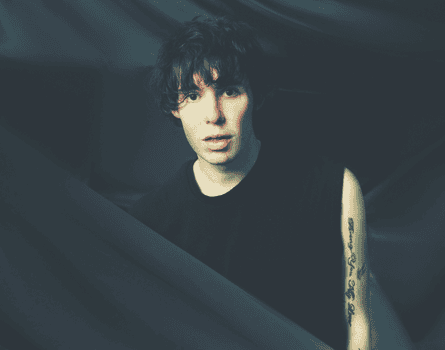When Jess Cornelius named her 2016 album Give Up on Your Health, she did so as a warning to herself not to get sick – physically, or mentally. As an artist, she couldn’t afford it.
The musician, who performs as Teeth & Tongue, has just swapped Melbourne for LA. Sounds great, except she found that sorting out visas, tax, social security numbers and bank accounts leaves little time for creativity. Being a musician is dispiriting, she says.
“There’s no correlation between how talented you are and how successful you are; it’s not an energy in/energy out thing like other occupations. So much of it is luck, or having the right person get behind it.”
More pressure comes from anxiety and perfectionism, says Cornelius – common issues for those working in the performing arts. “All artists put stuff out there to be judged, but the music industry is particularly challenging because you’re not just being evaluated on your music – it’s what scene you’re in, what you look like and what label you’re on. You then look critically at yourself, in the way that you think you’ll be viewed. It’s very destructive.”
No support. No advocate. No super. No sick leave. No annual leave. Long hours. Poor diet, occasionally comprised solely of liquids.
This is the reality for many people who work in the music industry, to the point that, at music conferences around the country, mental health has become a priority topic.
It was out of these kinds of conversations that the Wellbeing Helpline was launched this week by Support Act: a free and confidential 24-hour support line staffed by professional psychologists from AccessEAP, and available to anyone working in the music industry.
The organisation drew on research in New Zealand and Victoria that suggested people working in creative industries “face a number of unique challenges in relation to their overall mental health and wellbeing,” says Support Act’s chief executive, Clive Miller. “The good news is that many people are now speaking more openly about these issues and seeking solutions for themselves, their colleagues and their families.”
The Sydney singer-songwriter Jack Colwell would agree with that. His working life is diverse. He has put on solo shows at the Opera House; organised a concert for marriage equality at the Enmore; performed at Vivid four times; and composed for the Sydney Dance Company.
Yet Colwell has struggled to secure grants, so works multiple jobs to self-fund his records. “At one stage I was working retail from 7am until lunch, then teaching music till 9pm, and working most weekends,” he says. Not looking after himself led to every singer’s worst nightmare: vocal cord surgery. Thankfully, the operation on a polyp was successful and these days he prioritises his health.
“I don’t say yes to every opportunity any more,” he says. “It was important for me to learn that rest is a part of my job.”

Colwell thinks the Wellbeing Helpline is a great idea. “It’s a competitive industry where you have to keep face all the time,” he says. “There does seem to be a change in the air though, with people having more honest conversations. Artists like Adele are admitting that touring is taking a toll and they need to put health first. It’s having a chain reaction.”
If you think bands have it tough on the road, consider the tour manager who gets no downtime at all. Justin Healey is about to take Marlon Williams around Europe for two months and, while he’s on the road, all responsibility falls on his shoulders.
“A typical day will include driving for hours, checking in countless pieces of luggage on flights, unloading at the venue, soundchecking, sorting the guest list, briefing the security, checking the band into the hotel,” he says. “I’ll probably work between 14 to 18 hours, grabbing food from service stations and the band rooms.”
When he returns home he needs a week-long decompression period before feeling settled again. “I’m used to schedules and hotel rooms,” he says, “so when you get back the house looks really small and cluttered and I’m wondering where I should be next.”
Geoff Corbett has spent 23 years eviscerating venues as one of SixFtHick. He’s also a dual-diagnosis care coordinator at Brisbane’s Mater Health Services, working with young people who have mental health issues and drug and alcohol dependence. His advice for those who tour is to set goals.
“You need to plan ahead,” he says. “If I don’t sleep properly I start acquiring a suite of symptoms akin to psychosis. So you can ask yourself, ‘What days can I catch up on sleep?’ ‘What days can I minimise my drugs and booze intake?’”
He also recommends that this plan starts pre-tour.
“If you’re going into tour with borderline [drug] dependence issues I don’t expect they’ll be getting better while you’re away, so rein it in for a couple of months beforehand and reset. Being on tour is not the environment to make massive change, and the human body is susceptible to all sorts of things. Keith Richards is made out of wax or something.”
